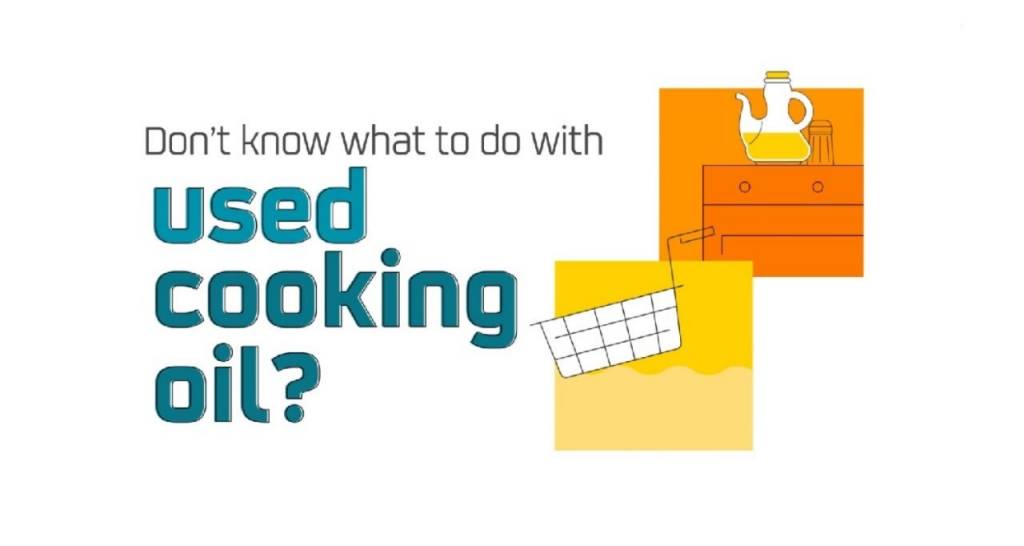
Find out about the process
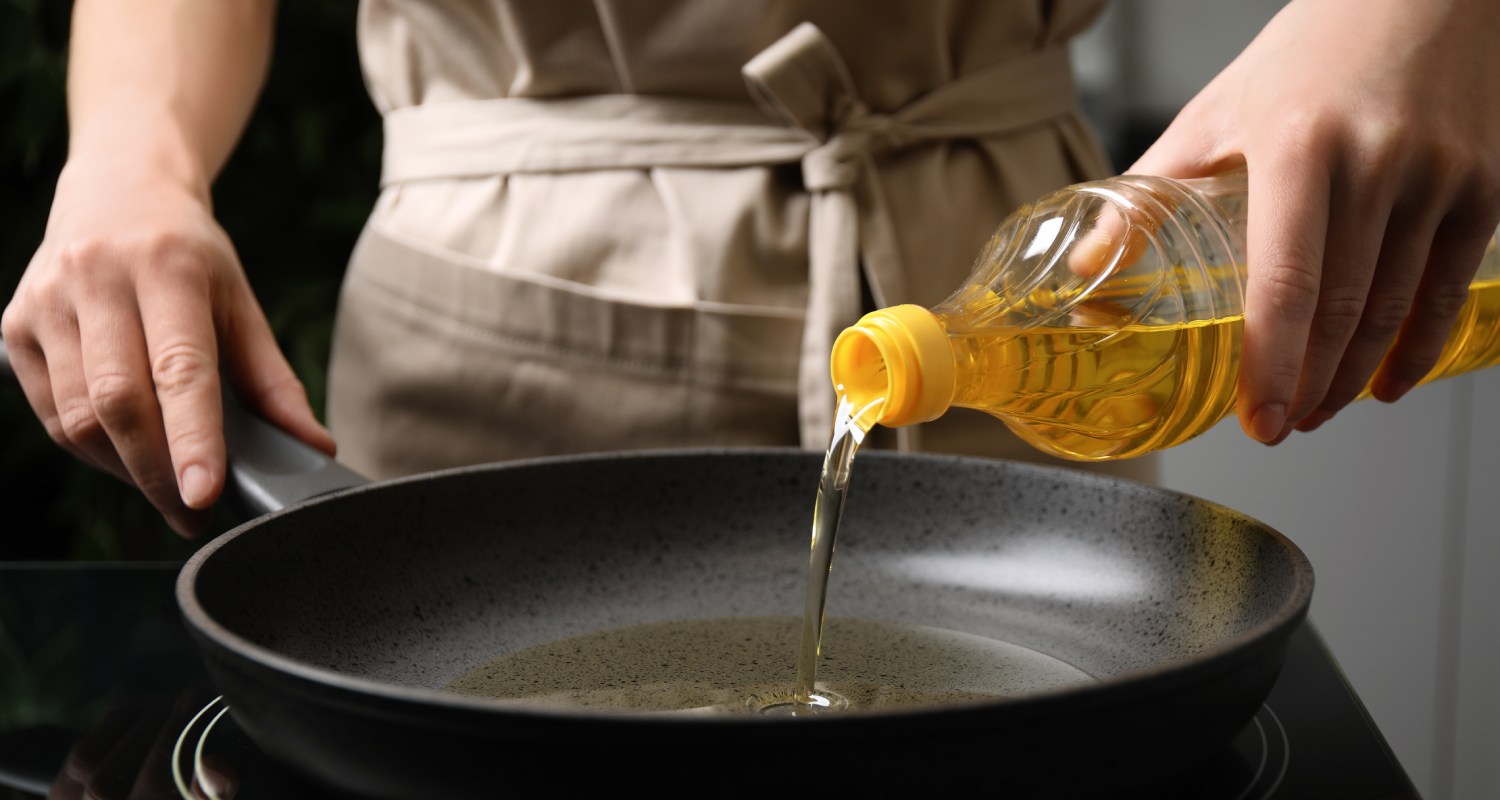
Renewable fuels
Oil, a culinary treasure that can (and should) be recycled
Many years ago, everything that was left over in Spanish kitchens was used to make new dishes, and just about nothing was thrown away. Our grandmothers threw stale bread into soup, they made 'ropa vieja' with the leftovers from stews, they made croquettes with chicken leftovers, and even used the oil used for frying potatoes or fish to make soap.
When it comes to recycling used oil, times have changed a lot and now technology allows us to put it to more sophisticated uses and turn it into products as diverse as fertilizers, biodegradable plastics, and renewable fuels. "The potential for the recovery of used oil is substantial, and we're transforming a waste that is polluting and difficult to treat into sustainable products that are useful and valuable," claims Jose Miguel Campos, a researcher at the Spanish National Research Council (CSIC).
Consumption and recycling of used oil in Spain
12 liters
Average oil consumption per person in Spanish households
350 million
Liters of cooking oil used per year in Spain
72%
Cooking oil recovered in the hospitality industry
5%
Cooking oil recovered in Spanish households
In order to get closer to the European average, the new Law on waste and contaminated soil states that towns must have a separate oil collection system in place by 2025. In the meantime, various public and private entities are launching awareness-raising initiatives to recycle used cooking oil, such as the one launched by the government of Madrid, which gives bottles of virgin olive oil produced in the region to those who bring their frying oil to the collection points. Also in this region, Repsol collects used cooking oil from its customers at 150 service stations, which it will then use as a raw material to produce renewable fuels.

Find out about the process
For every 100 liters of oil recycled, 80 liters of renewable fuels are produced.
However, the main task of collecting used oil recycling is carried out by bars and restaurants, the major consumers of oil in Spain. Susana Muñoz, manager of the restaurant Sala Cinco, in the city of Cuenca, knows this issue well because she recycles cooking oil both in her business and at home. "As a rule of thumb, we change the oil in the fryer, which has an eight-liter capacity, every other day, to maintain the quality of the dishes we offer," she explains. The used oil is deposited in drums provided by the company that manages this waste, which are placed under the fryer. When the drum is full, the manager collects it, free of charge, and replaces it with a clean drum.
According to Susana, recycling is a matter of "social responsibility with the environment, and that's why I also do it at home. I don't have a fryer, but I put it in plastic bottles that I deposit in an oil collection container close to where I live. It requires extra effort, but I feel good about myself when I do it."
The Lienzo restaurant in Valencia, recognized with a Repsol Guide Sun, also recycles every single drop of used cooking oil. Although in its culinary offering the use of this liquid is strictly measured, they have an innovative system to prevent the slightest trace of cooking oil from reaching the sewage system. "We were one of the first restaurants to have a decanting machine," which filters the water used to wash dishes to remove all the residual oil, "so that the water that ends up in the network is completely free of this residue," explains María José Martínez, chef and co-owner of the restaurant.
How to recycle used cooking oil
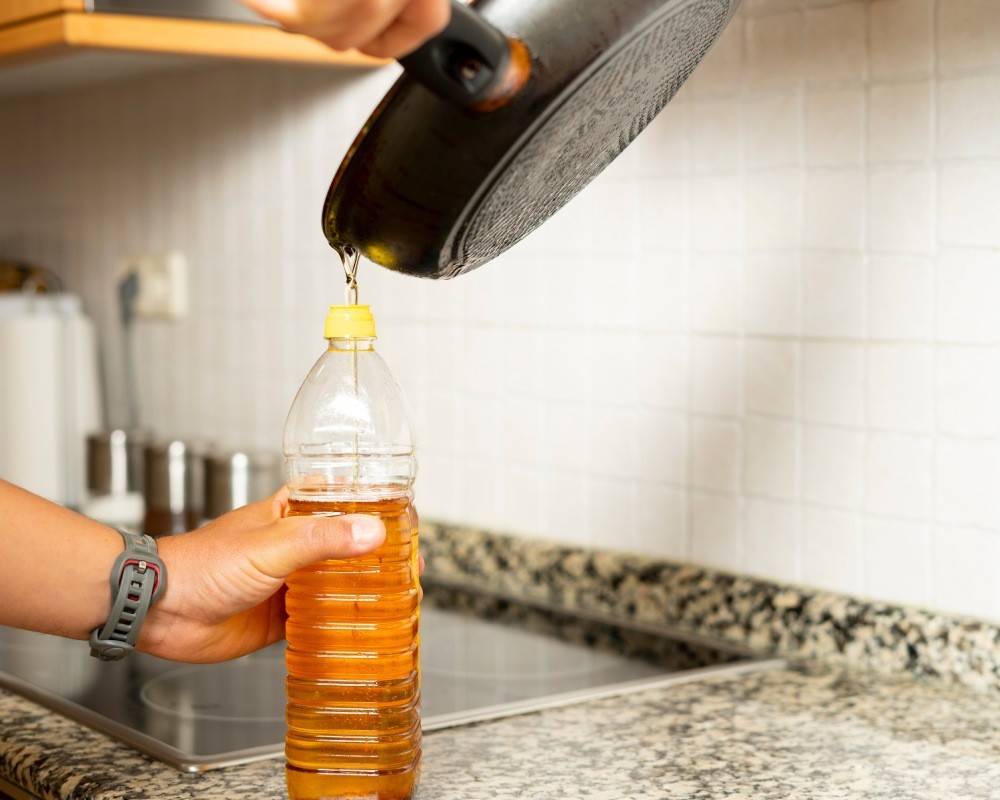
Store it
You can store the used oil in a plastic bottle until it's full.

Drop it off
Once the bottle is full, you can drop it off at fixed or mobile recycling points in your town or in containers designed for this purpose on public roads, malls, etc.

Repsol service stations
Used cooking oil is collected at our service stations in Madrid, and you'll get a €0.30 discount through Waylet for every liter you drop off.

Spain's first advanced biofuels plant
Used oil can be used to produce renewable fuels, fertilizers, and bioplastics.
Olive oil is a culinary treasure and a source of wealth in Spain as it produces 70% of this liquid in the EU and is the world's leading exporter. However, its value doesn't disappear once used in kitchens because it can still be used to manufacture multiple products.
"Used cooking oil is waste that needs to be somehow utilized, and an excellent opportunity is to use it as a raw material to manufacture advanced biofuels," says Rafael Roldán, researcher at the Technology Lab, our innovation center at Repsol. "By harnessing it, we can produce this type of renewable fuel that's net zero emissions and that can be used in today's car, truck, aircraft, or ship engines." Repsol will start producing this fuel at the end of 2023 at its new advanced biofuels plant in the Cartagena Industrial Complex, which will become the first factory of its kind in Spain.
The production of these renewable fuels represents "a step forward," emphasizes CSIC expert Jose Miguel Campos, "because the efficiency of the production process is very high. For every 100 liters of oil recycled, 80 liters of biofuels are produced. Additionally, of the remaining 20%, 5-10% can be transformed into biopropane, a biogas that's the same as the LPG we use in heating cylinders.
Used oil can also have a second life transformed into biodegradable bioplastics, "particularly PHA, a type of plastic with numerous applications," Campos adds. "These bioplastics that are being developed will be suitable for any use we give to normal plastics, and as an alternative, for example, to compostable plastics, which are made from potato or corn starch. This way, we'll be using a waste product as a raw material and not a food product".
In the chemical industry, another field with great potential is the reuse of used frying oil to make surfactants, which are the basis of many products we use in our daily lives such as detergents, cosmetic creams, and paint.
According to Rafael Roldán, recycling the oil we use in our homes is not only a beneficial measure for the environment. It's also a habit that will contribute to a broader social change, which will be key to achieving a more sustainable planet: "We're moving towards a circular economy in which, by reusing this waste, solutions and products of value to society are already being created".
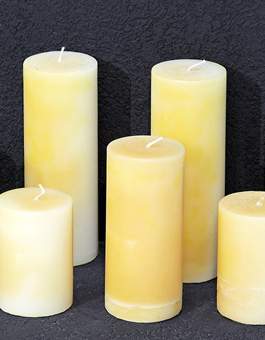
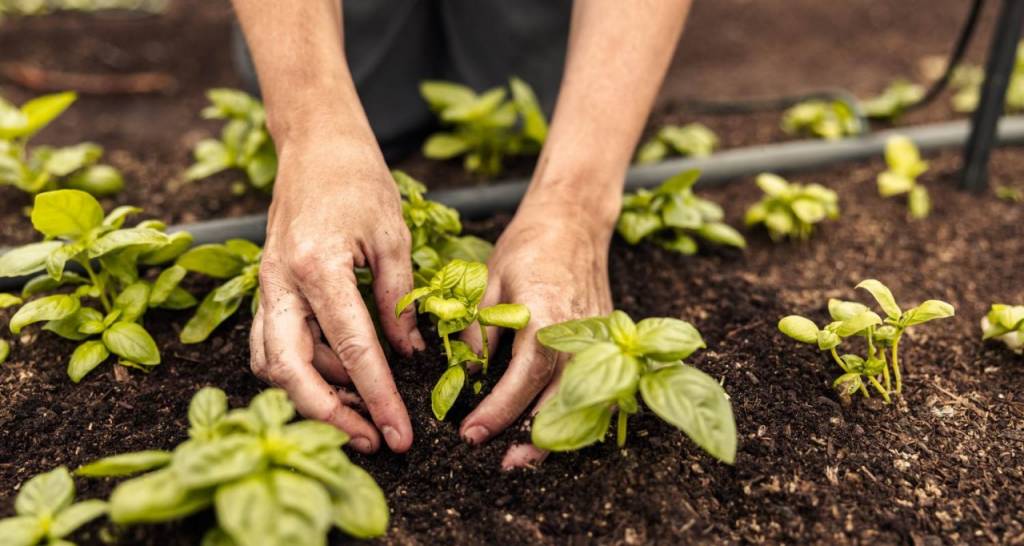
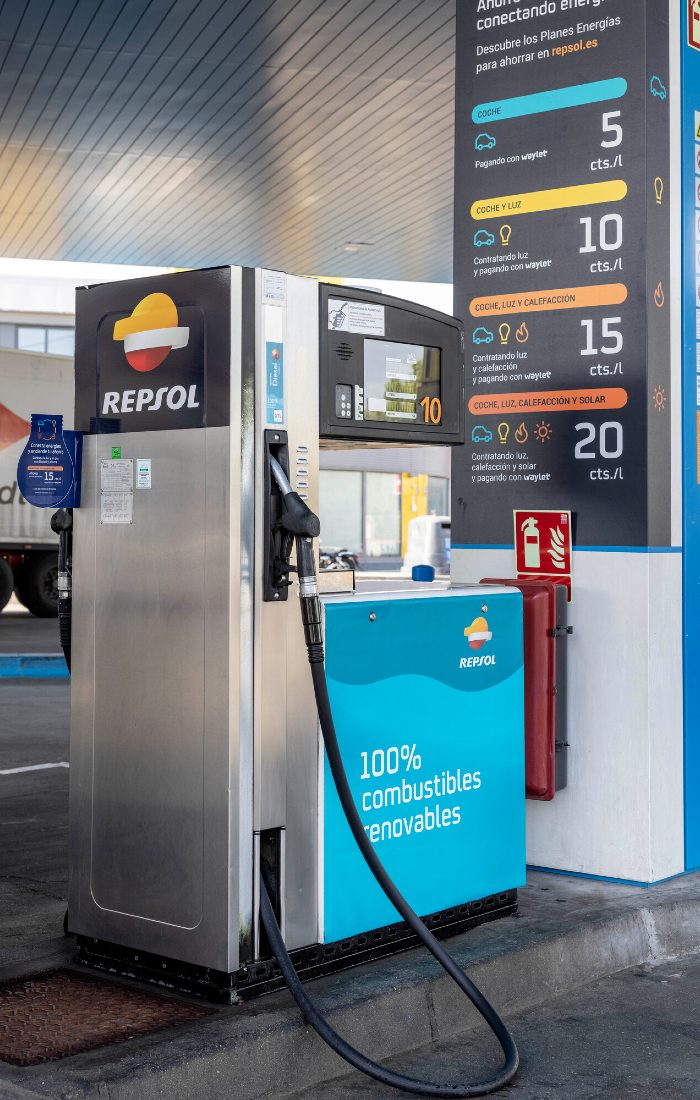
Main uses of used frying oil
Renewable fuels
Fertilizers
Bioplastics
Cosmetic creams
Detergent
Paint
Varnish
Candles
Why is it important to recycle used oil?
It is estimated that 2/3 of the frying oil in Spain ends up flushed down the sink or the toilet. This gesture, even though it may seem trivial, is certainly not. According to the Aquae Foundation, each liter of oil discarded this way can contaminate up to 1,000 liters of water, cause blockages in pipes and collectors, and make wastewater treatment processes more difficult and expensive, resulting in an approximate annual cost of €90 million in Spain. Oil also forms a film on the surface of rivers and lakes that hinders the circulation of oxygen, damaging plants and wildlife. Properly recycling this type of waste is therefore a necessity.
Biodiesel
A clean, renewable fuel of natural origin.

Renewable fuels
Find out what they are and why they represent a sustainable alternative.